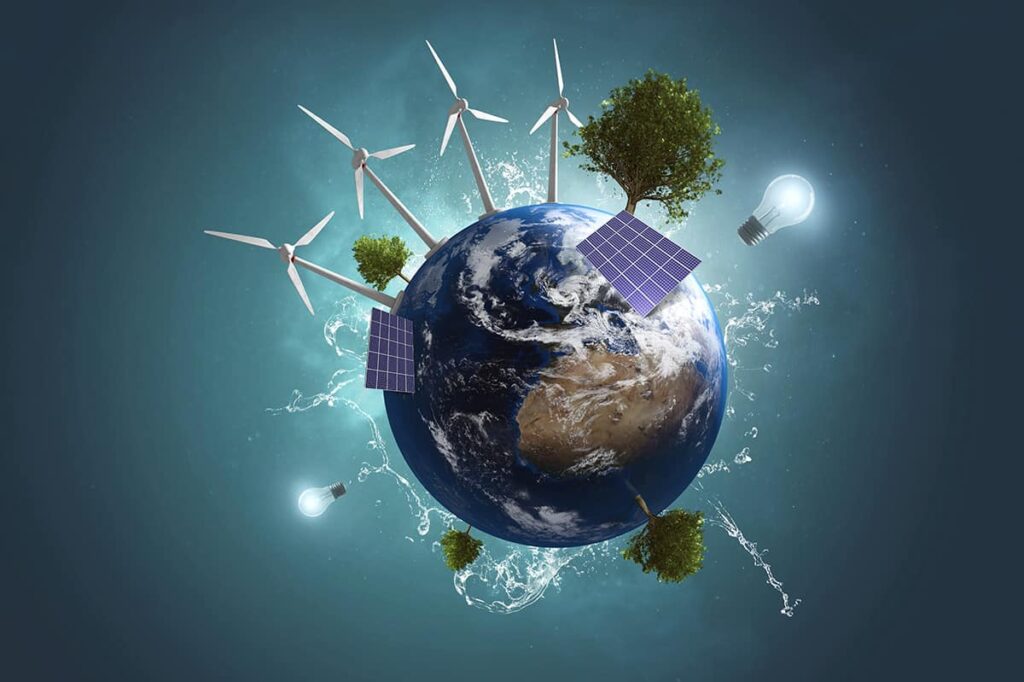World Shift to Clean Energy is Unstoppable, IEA report says

World Energy Outlook shows there are set to be almost 10 times as many electric cars on the road, with renewables nearing half of the global power mix, but much stronger policies needed for 1.5 °C
Major shifts underway today are set to result in a considerably different global energy system by the end of this decade, according to the IEA’s new World Energy Outlook 2023. The phenomenal rise of clean energy technologies such as solar, wind, electric cars and heat pumps is reshaping how we power everything from factories and vehicles to home appliances and heating systems.
The latest edition of the World Energy Outlook (WEO), the most authoritative global source of energy analysis and projections, describes an energy system in 2030 in which clean technologies play a significantly greater role than today. This includes almost 10 times as many electric cars on the road worldwide; solar PV generating more electricity than the entire US power system does currently; renewables’ share of the global electricity mix nearing 50%, up from around 30% today; heat pumps and other electric heating systems outselling fossil fuel boilers globally; and three times as much investment going into new offshore wind projects than into new coal- and gas-fired power plants.
All of those increases are based only on the current policy settings of governments around the world. If countries deliver on their national energy and climate pledges on time and in full, clean energy progress would move even faster. However, even stronger measures would still be needed to keep alive the goal of limiting global warming to 1.5 °C.
The combination of growing momentum behind clean energy technologies and structural economic shifts around the world has major implications for fossil fuels, with peaks in global demand for coal, oil and natural gas all visible this decade – the first time this has happened in a WEO scenario based on today’s policy settings. In this scenario, the share of fossil fuels in global energy supply, which has been stuck for decades at around 80%, declines to 73% by 2030, with global energy-related carbon dioxide (CO2) emissions peaking by 2025.
“The transition to clean energy is happening worldwide and it’s unstoppable. It’s not a question of ‘if’, it’s just a matter of ‘how soon’ – and the sooner the better for all of us,” said IEA Executive Director Fatih Birol. “Governments, companies and investors need to get behind clean energy transitions rather than hindering them. There are immense benefits on offer, including new industrial opportunities and jobs, greater energy security, cleaner air, universal energy access and a safer climate for everyone. Taking into account the ongoing strains and volatility in traditional energy markets today, claims that oil and gas represent safe or secure choices for the world’s energy and climate future look weaker than ever.”
As things stand, demand for fossil fuels is set to remain far too high to keep within reach the Paris Agreement goal of limiting the rise in average global temperatures to 1.5 °C. This risks not only worsening climate impacts after a year of record-breaking heat, but also undermining the security of the energy system, which was built for a cooler world with less extreme weather events. Bending the emissions curve onto a path consistent with 1.5 °C remains possible but very difficult. The costs of inaction could be enormous: despite the impressive clean energy growth based on today’s policy settings, global emissions would remain high enough to push up global average temperatures by around 2.4 °C this century, well above the key threshold set out in the Paris Agreement.
The WEO-2023 proposes a global strategy for getting the world on track by 2030 that consists of five key pillars, which can also provide the basis for a successful COP28 climate change conference. They are: tripling global renewable capacity; doubling the rate of energy efficiency improvements; slashing methane emissions from fossil fuel operations by 75%; innovative, large-scale financing mechanisms to triple clean energy investments in emerging and developing economies; and measures to ensure an orderly decline in the use of fossil fuels, including an end to new approvals of unabated coal-fired power plants.
“The transition to clean energy is happening worldwide and it’s unstoppable. It’s not a question of ‘if’, it’s just a matter of ‘how soon’ – and the sooner the better for all of us,” said IEA Executive Director Fatih Birol.
Related Article: IEA Calls for Urgent Action to Cut Methane Emissions from Fossil Fuel Operations
“Every country needs to find its own pathway, but international cooperation is crucial for accelerating clean energy transitions,” Dr Birol said. “In particular, the speed at which emissions decline will hinge in large part on our ability to finance sustainable solutions to meet rising energy demand from the world’s fast growing economies. This all points to the vital importance of redoubling collaboration and cooperation, not retreating from them.”
At a time when rising geopolitical tensions in the Middle East have refocused attention on energy security concerns once more and when many countries are still contending with the impacts of the global energy crisis that erupted last year, the WEO-2023 examines the evolving range of energy security challenges. The fraught situation in the Middle East comes 50 years after the oil shock that led to the founding of the IEA, creating further uncertainty for an unsettled global economy that is feeling the effects of stubborn inflation and high borrowing costs.
The WEO-2023 highlights that one area of global energy markets that was hit particularly hard by the global energy crisis is set to see pressures ease in a couple of years. Natural gas markets have been dominated by fears about security and price spikes after Russia cut supplies to Europe, and market balances have remained precarious. But an unprecedented surge in new liquefied natural gas (LNG) projects coming online from 2025 is set to add more than 250 billion cubic metres per year of new capacity by 2030, equivalent to around 45% of today’s total global LNG supply.
The strong rise in capacity will ease prices and gas supply concerns, but also risks creating a supply glut, given that global gas demand growth has slowed considerably since gas markets’ “golden age” of expansion during the 2010s. As a result, Russia will have very limited opportunity to expand its customer base. Its share of internationally traded gas, which stood at 30% in 2021, is set to drop to half of that by 2030.
The WEO-2023 considers in detail a major variable for energy markets in the coming years. China, which has an outsize influence on global energy trends, is undergoing a major shift as its economy slows and undergoes structural changes. China’s total energy demand is set to peak around the middle of this decade, the report projects, with continued dynamic growth in clean energy putting the country’s fossil fuel demand and emissions into decline.
This year’s WEO also explores the potential for stronger growth of solar PV this decade. Renewables are set to contribute 80% of new power generation capacity to 2030 under current policy settings, with solar alone accounting for more than half of this expansion. However, this scenario takes into account only a fraction of solar’s potential, according to the WEO analysis. By the end of the decade, the world is set to have manufacturing capacity for more than 1 200 gigawatts (GW) of solar panels per year, but it is projected to actually deploy only 500 GW in 2030. If the world were to reach deployment of 800 GW of new solar PV capacity by the end of the decade, it would lead to a further 20% reduction in coal-fired power generation in China in 2030 compared with a scenario based on today’s policy settings. Electricity generation from coal and natural gas across Latin America, Africa, Southeast Asia and the Middle East would be a quarter lower.












